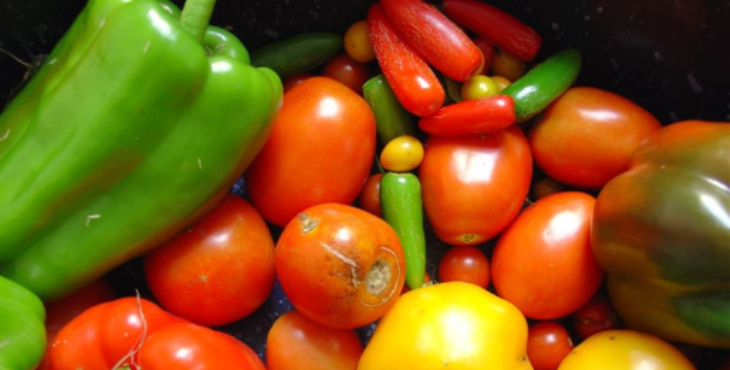Sometimes we don’t think about what goes into the production, processing, packaging and transportation of the foods we eat. All those elements play a role in what is called sustainability. If a food is considered more sustainable it is found to have a more positive impact on public health and communities, animal welfare, and the environment. According to the Centers for Disease Control, making sustainable food decisions is not hard, but it takes a commitment.
When we think of food that is sustainable, we should look for a few specifics according to the Centers for Disease Control:
- Food production that does not harm the environment
- Supports and preserves rural communities
- Is healthy and nutritious
- Respects farm animals
- Provides farms with fair wages
- Is free of added toxins
- Is grown locally
- Does not harm the health of farm workers
So how does that translate to what we eat daily and put on our dinner plate? Nutrition handout Healthy Sustainable Eating Tips gives us tools to eat healthy and take care of our planet.
Are you interested in eating in a way that is more sustainable? You could try these tips:
- Prepare meals from plant-based food more often. Not only does eating a plant-based diet decrease the risk for chronic disease such as diabetes and heart disease, it reduces greenhouse gas emissions and uses less land and water for food production than meat does. Have you ever heard of Meatless Mondays?
- Choose local fruits and vegetables and eat what is in season. The nutrients will be preserved longer and fewer chemicals will be used. Look for farmers markets in your area.
- Plan meals ahead of time to use things before they “go bad” – this prevents food waste.
Together we can work towards improving our health and environment for future generations. Do you want to live a sustainable lifestyle? Check out this Sustainability Checklist for your home.
Are you interested in learning more about nutrition? Contact your local VA and ask to speak with a registered dietitian! Your VA may offer a Healthy Teaching Kitchen program. This would help you learn how to take what you bought locally or grew at home to create healthy meals and snacks like this spaghetti squash recipe.

Topics in this story
More Stories
Veteran Byron Potier weighed almost 300 pounds and was tired and lethargic. He was the perfect candidate for gastric sleeve surgery.
How much do you know about VA care, benefits and services? Don’t miss out on what you've earned—check out the "2025 VA Federal Benefits Guide for Veterans, Dependents, Survivors, and Caregivers" handbook to learn more.
Feeling stressed? Your breath can help you relax and focus. Take 3 minutes to reset and prioritize your well being for this week's #LiveWholeHealth practice.







Hi Laura, I really like how you’ve formulated this: “Together we can work towards improving our health and environment for future generations”, thank you for the informative links, I will definitely use them to learn more about nutrition.
widow
Thank you for your advice.
what if you can’t afford it